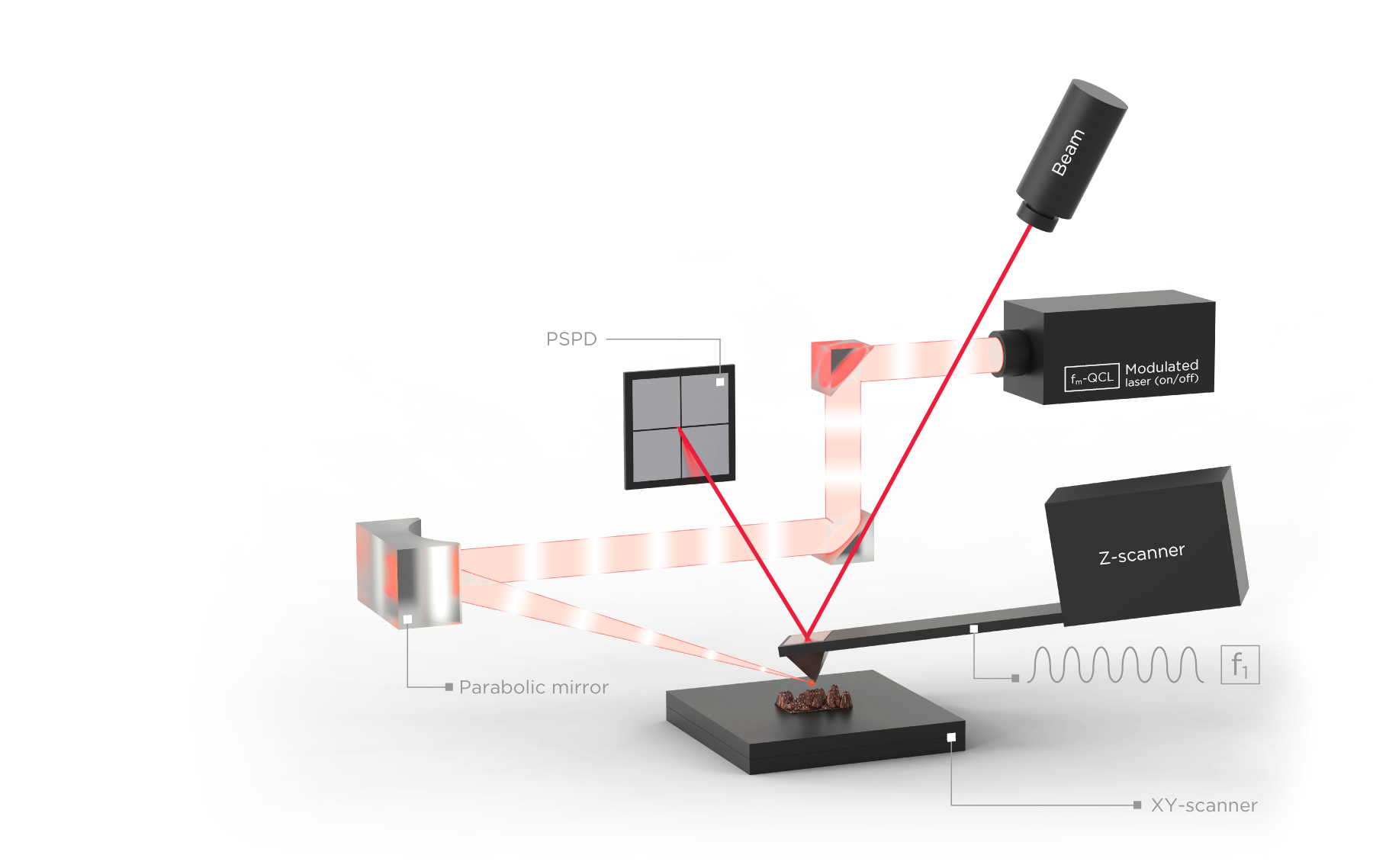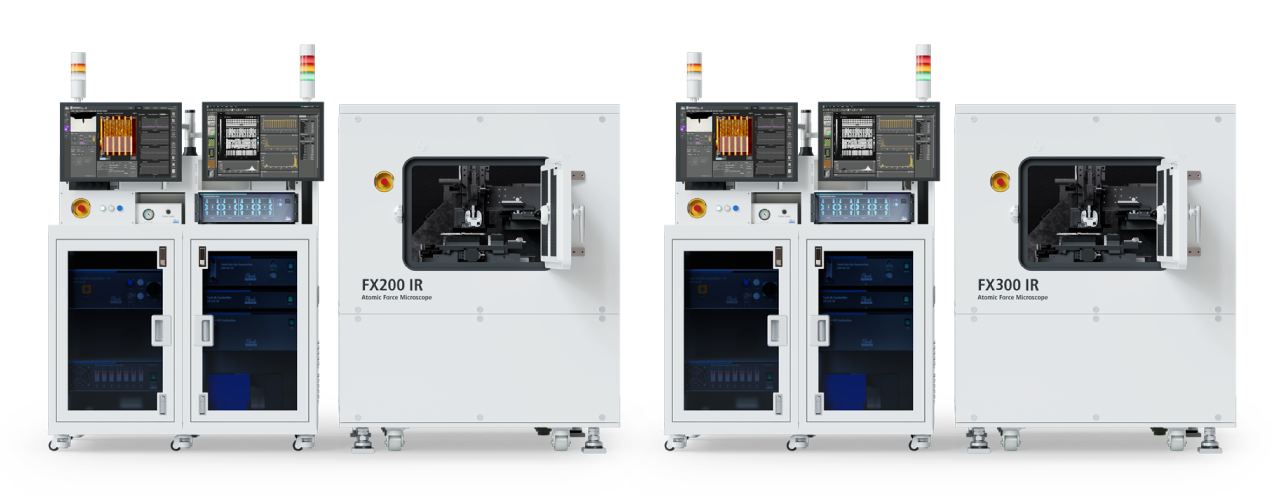
Park nano-IR Spectroscopy
AFM-Integrated Nanoscale IR Spectroscopy for Precise Chemical Analysis
Park nano-IR integrates nanoscale infrared (IR) spectroscopy with atomic force microscopy (AFM) to deliver advanced chemical and materials characterization. By incorporating the latest in infrared spectroscopy—photo-induced force microscopy (PiFM)—into the industry-leading Park AFM platform, this system offers unparalleled performance in nanoscale analysis.


